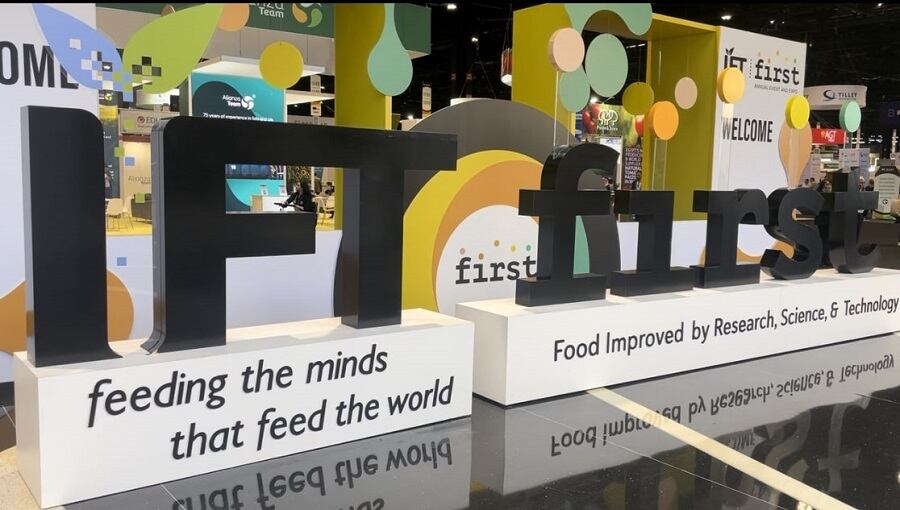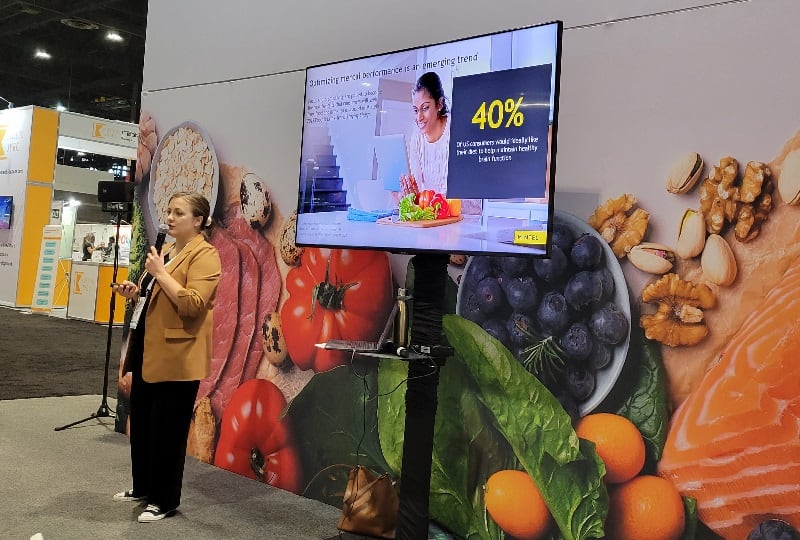This year’s IFT First program, “Innovation in a time of crisis: Can we future-proof the food system?” centered around food’s intersection between environmental health and technological innovation. With a burgeoning population of almost 10 billion people, coupled with food scarcity, food waste, malnutrition and poor weight management, redesigning food access, availability and accessibility are intrinsically linked to a holistically sustainable agricultural system that’s continuously replenished from seed to package.
While it sounds like a doomsday prophecy, preparing for the next crisis is inevitable from a food system perspective. As Mark Bittman wrote in his 2021 book “Animal, Vegetable, Junk,” food’s impact on human existence is inimitable and “you can’t have a serious conversation about food without talking about human rights, climate change, and justice.”
From plant-based proteins and precision fermentation to water disinfection and regenerative agriculture, it will take more than one technology to address these barriers. During the panel, What Innovations Will Prepare Us for the Next Crisis? Valérie Orsat, PhD, professor at McGill University pointed out that disrupting our relation to food is ideal, but difficult to accomplish. This could look like transitioning away from the supermarket concept of stocking produce year-round and focusing on regional and seasonal availability.
“In terms of ingredients, that’s where there’s going to have to be innovation. We need to reinvent what ingredients and foods are available to us year-round. We need to eat better. We all need to eat. And science, perhaps we need to reinvent…We need to do that in order to make sure our food supply meets the needs with the needs of the planet in terms of reducing our greenhouse gas emissions and reducing its effect on climate change and extreme climatic events which seem to be increasing for all of us,” she opined.
While research, science and technology continue carving out possible solutions in the ingredient space, Orsat asks what are the right ingredients?
Nature published an academic study this month on the environmental impact of vegans, vegetarians, pescatarians and meat-eaters in the UK. The study concluded that “there is a strong relationship between the amount of animal-based foods in a diet and its environmental impact, including GHG emissions, land use, water use, eutrophication and biodiversity.”
The researchers also added that “dietary shifts away from animal-based foods can make a substantial contribution to reduction of the UK environmental footprint. Uncertainty due to region of origin and methods of food production do not obscure these difference between diet groups and should not be a barrier to policy action aimed at reducing animal-based food consumption.”
The study offers insight into the role plant-based proteins play for both human health and sustainability. Of course, animal meat will not disappear, however, plant-based proteins create more options for consumers so that meat is not the only source. With the advent of hybrid meat, there’s an opportunity to bridge the gap as well.
Functional and sustainable ingredients for fortified foods
Exhibitors on IFT FIRST's show floor featured a range of solutions and concepts addressing nutrition in the form of dietary fiber, alternative sweeteners and protein—all highlighting the role of functional ingredients in fortified foods and beverages that are designed to satiate and improve the body’s functions, while addressing sustainability.
COSUCRA’s chicory root fiber, Fibruline, was presented in an almond milk and chocolate biscuit. While complementing the dairy-like, fatty texture due to its high solubility, the chicory root fiber contains zero grams of sugar, while enhancing dietary fiber content. Its presence in the chocolate biscuit featured a 30% sugar reduction, aligning with consumer’s preferences towards healthy and permissible indulgences, Frank Truong, general manager, COSUCRA, explained to FoodNavigator-USA.
Eric Bosly, CEO, added that its chicory root is sourced locally from farms within a 60 km radius in Belgium and France, supporting both agriculture and farmers, while lowering transportation costs. For the company’s pea protein made from yellow peas, the plant is grown sans fertilizer, reducing emissions.
“What we are more willing to communicate is the practice we promote for the agriculture, for the farmer. So…the fact that you don’t use fertilizer to grow peas is extremely important because fertilizer production consumes a huge amount of energy. So at the end for our customer, if they buy a product that does not use fertilizer, the CO2 content of the final product will be much lower. We believe in the future, this will be a differentiating factor between ingredients and food products,” Bosly explained to FoodNavigator-USA.
Upcycled ingredients also offer solutions towards sustainability and health, according to Geita. The company’s SOLUFORM, a protein-enriched gelatin, fits the better-for-you confectionery trend by reducing sugar and contributing to a soft, chewy texture, while gelatin is produced as a byproduct of meat production, Angie Rimel, marketing communications manager, explained to FoodNavigator-USA.
Biotech company, TurtleTree uses precision fermentation to produce the bioactive milk protein, lactoferrin, and featured its ingredient LF+ on the show floor. While the expensive and rare lactoferrin was initially used in infant formula and dietary supplements, TurtleTree intends to provide the multifunctional, animal-free milk protein at a lower cost than its animal counterpart for fortified plant-based milk and dairy products, as well as sports nutrition.
Global Organics featured its upcycled product, coconut flour, a byproduct of coconut oil. Ideal for immune health in beverages and snacks, coconut flour exhibits low sugar and low carbohydrates, Ravi Arora, director of sales and marketing, Global Organics, explained to FoodNavigator-USA. The brand also featured its regenerative organic certified (ROC) cane sugar. “Our cane sugar project was the first one that received ROC…and one of the largest organic projects of any kind in the world…People always think of organics as something that only small farmers can do on small plots. You can do it on a [large scale], and [farmers] have 20,000 hectares and doing cane production in an organic way," Arora said.
It's notable that cane sugar production is one agricultural industry in need of reform due to its significant CO2 emissions and water/land use. “Sugarcane covers 65 million acres of land worldwide, and a dozen countries use at least 25% of their farmland to grow it,” according to World Wildlife Fund.
Historically, sugar was produced via slave labor and its harvest and refining contributed to significant soil depletion and deforestation around the world. Coupled with diet-related illnesses, sugar remains a challenge in the food industry as a sustainable and healthy ingredient, hence the ongoing development of alternative sweeteners, yet, ROC and other third-party certifications committed to sustainable cane sugar production, offer a solution to these barriers.




